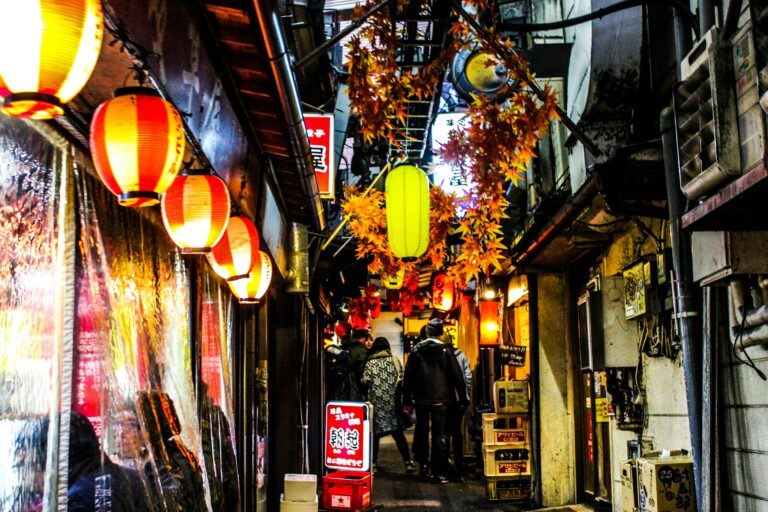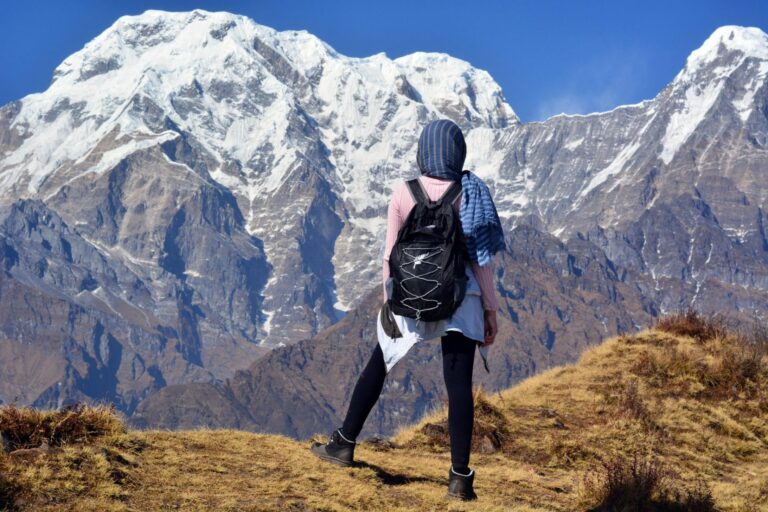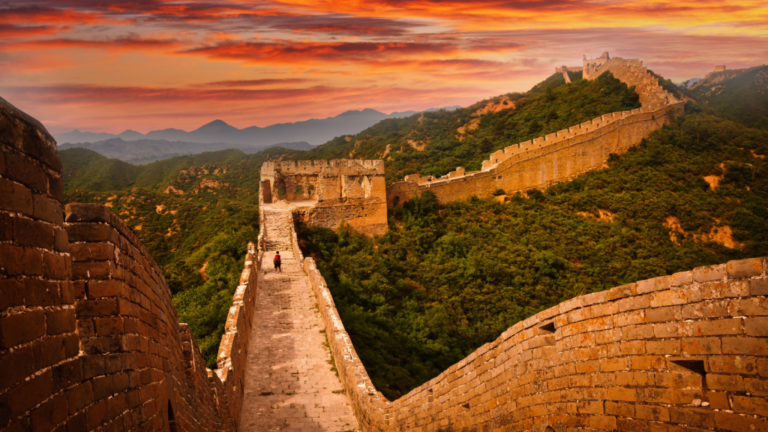Top 8 Most Iconic Temples in Nepal
Aside from its epic mountain ranges, mouth-watering cuisine, and diverse range of wildlife, Nepal – with its rich cultural heritage, is a haven for some of the most iconic temples in the world. Each temple in Nepal has its own unique story, religious significance (normally a testament to either Hinduism or Buddhism), and architectural magnificence. Are you wondering where to start? Here’s a look at the top 8 must-visit temples in Nepal.
1. Swayambhunath Stupa (aka, Swayambhu Monkey Temple)
Location: Kathmandu
Situated on a hill overlooking Kathmandu Valley, Swayambhunath Stupa, also known as Swayambhu Monkey Temple, is one of Nepal’s most sacred and well-known Buddhist sites. The stupa’s white dome and golden spire, embellished with the all-seeing eyes of the Buddha, are instantly recognisable after walking the 365 steps from the road to the stupa entrance.
The features of this iconic temple in Nepal don’t end here. Commencing clockwise (as devotees of the Buddhist religion do), you will find a variety of shrines, smaller stupas and, at each of the cardinal points around the Swayambhu Stupa, buildings dedicated to the five elements – earth, air, water, fire, and sky. Encapsulated by the surrounding panoramic views of Kathmandu – this temple in Nepal is well worth a visit. Oh, you might also be wondering why this is known as the Monkey Temple in Nepal. It’s quite literally, thanks to a group of monkeys that have lived in the northwest part of the Swayambhu temple complex for generations.
2. Pashupatinath Temple in Nepal
Location: Kathmandu
Pashupatinath Temple, located on the banks of the Bagmati River, is renowned as one of the holiest temples for Hindus worldwide, dedicated to Lord Shiva. This expansive UNESCO World Heritage Site features stunning pagoda-style architecture, including intricately carved wooden rafters, cubic sculptures, two-level roofs covered with copper and gold sheets, and a golden pinnacle – plus surrounding shrines and ashrams. During the Maha Shivaratri festival, held in remembrance of Lord Shiva, the Pashupatinath temple plays a central role attracting thousands of devotees and sadhus each year.
3. Boudhanath Stupa
Location: Kathmandu
Boudhanath Temple in Nepal, another UNESCO World Heritage Site, is one of the most significant pilgrimage sites for Tibetan Buddhists outside Tibet. The stupa’s massive mandala – with a diameter of approximately 100m (about the length of a football field) – makes it one of the largest spherical stupas in Nepal. Despite its size, the sound of prayer wheels and the sight of monks chanting create a serene atmosphere, making Boudhanath Temple in Nepal a spiritual haven for visitors.


4. Maya Devi Temple
Location: Lumbini
Arguably one of the most iconic temples in Nepal, Maya Devi Temple in Lumbini marks the exact spot where Queen Maya Devi gave birth to Siddhartha Gautama – more commonly known as Lord Buddha – making it a site of immense spiritual importance. The site is a UNESCO World Heritage Site, surrounded by ancient ruins, monasteries, and a sacred garden. Rightly so, travellers from all over the world visit the Maya Devi Temple to pay their respects and meditate in the tranquil Ashok part of the Maya Devi Temple grounds.
5. Tal Barahi Temple
Location: Pokhara
Tal Barahi Temple, located on an island in the middle of Phewa Lake in Pokhara, is a two-story pagoda-style temple with a gold Gajur on top dedicated to the Goddess Durga: Protector of Gods. This beautiful temple in Nepal, accessible only by boat, offers travellers a serene and picturesque journey across the lake, before enjoying holy rituals at this Pokhara temple.


6. Golden Temple (Hiranya Varna Mahavihar)
Location: Lalitpur (Patan)
The Golden Temple, also known as Hiranya Varna Mahavihar, is a stunning Buddhist monastery in the heart of Lalitpur – serving as a place of worship, meditation, and cultural preservation. Those who appreciate beauty at its finest will be captivated by the temple’s exquisite golden façade and intricate artwork – a true masterpiece of Newari architecture. The temple complex includes beautiful courtyards, statues, and a main shrine embellished with gold-plated copper.
7. Baglamukhi Temple
Location: Patan
Baglamukhi Temple is one of Nepal’s most cherished temples, dedicated to the goddess Bagla Mukhi, who is worshipped for her power, protection, and victory over obstacles. Known for its powerful spiritual energy, this temple in Nepal is a popular site for those seeking blessings for victory and protection. The intricate woodwork and detailed carvings of the temple reflect the rich artistic heritage of the Newar community. When visiting, the temple courtyard is never short of hundreds of devotees, creating a vibrant and lively atmosphere.


8. Muktinath Temple
Location: Mustang
Muktinath Temple, located in the remote Mustang region, is a sacred site for both Hindus and Buddhists. Uniquely located at the foot of the Thorong La mountain pass, part of the Annapurna Circuit, the journey to Muktinath temple is considered both challenging and spiritually rewarding.
Once there, you’ll be met with breathtaking views of Nepal’s surrounding landscapes, including the white peaks of Mount Dhaulagiri – the seventh-highest mountain in the world. The Muktinath temple is quaint with a central pagoda-style shrine, featuring a multi-tiered roof, ornate wooden carvings, and a murti made of gold. The temple’s prakaram (outer courtyard) includes 108 waterspouts, all in the shape of bulls, which are believed to cleanse the sins of those who bathe under them.
Temples in Nepal temples are not just places of worship; they are embodiments of the country’s history, culture, and spirituality. Visiting these iconic temples in Nepal provides a deep insight into the religious harmony and architectural brilliance that define Nepal.





